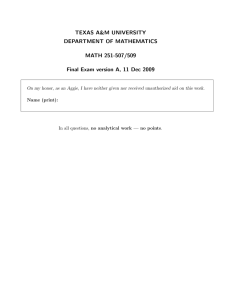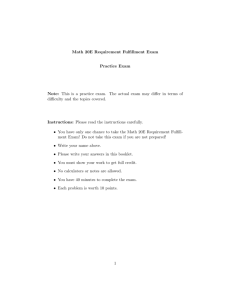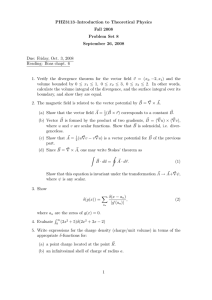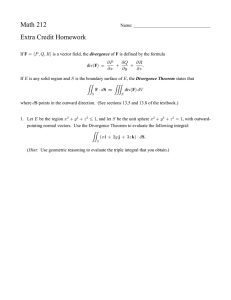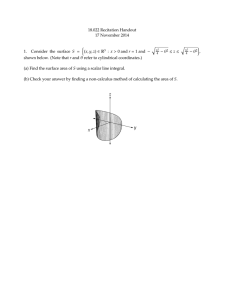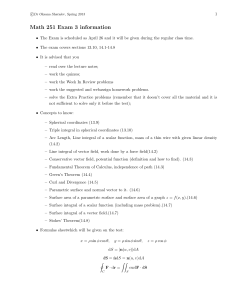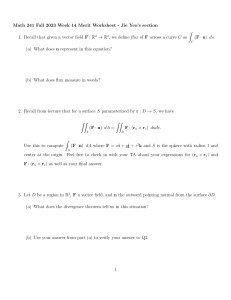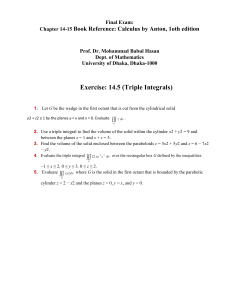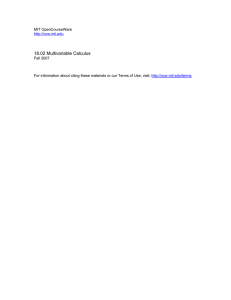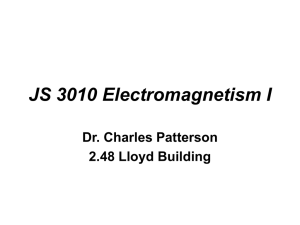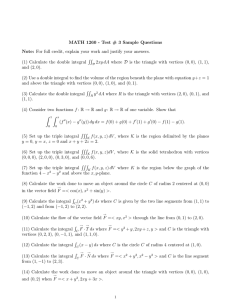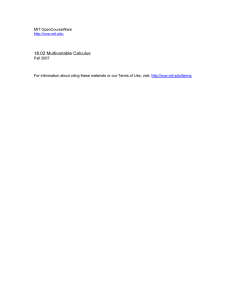MATH 2210 - FINAL EXAM PROBLEMS , t
advertisement
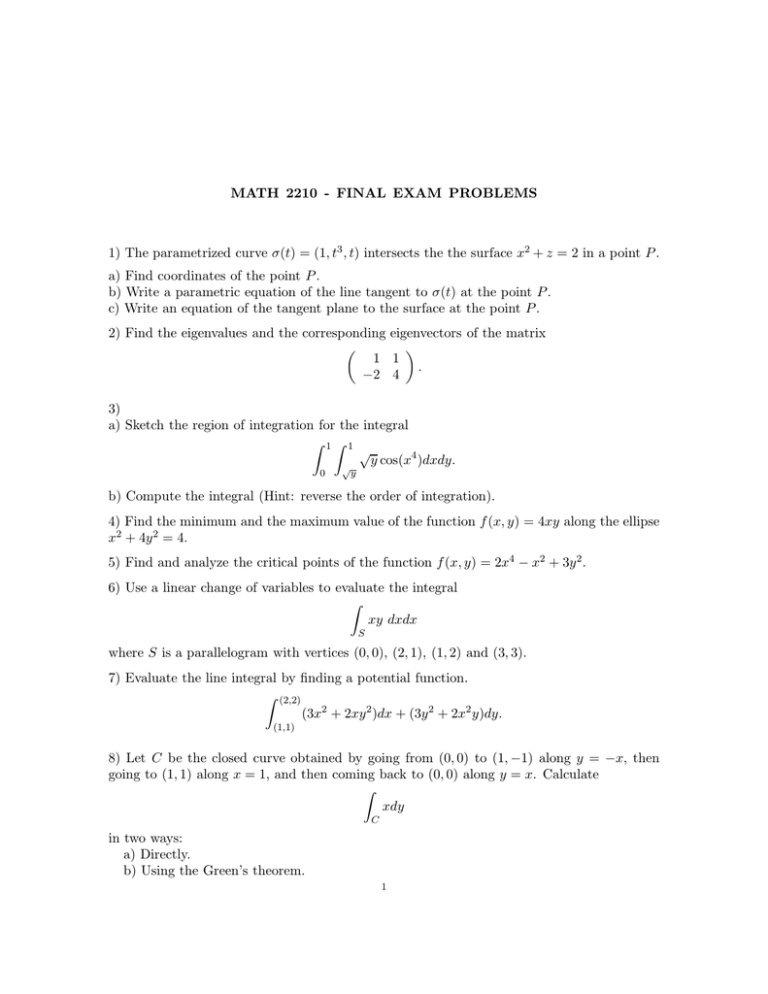
MATH 2210 - FINAL EXAM PROBLEMS 1) The parametrized curve σ(t) = (1, t3 , t) intersects the the surface x2 + z = 2 in a point P . a) Find coordinates of the point P . b) Write a parametric equation of the line tangent to σ(t) at the point P . c) Write an equation of the tangent plane to the surface at the point P . 2) Find the eigenvalues and the corresponding eigenvectors of the matrix 1 1 . −2 4 3) a) Sketch the region of integration for the integral Z 1Z 1 √ y cos(x4 )dxdy. √ 0 y b) Compute the integral (Hint: reverse the order of integration). 4) Find the minimum and the maximum value of the function f (x, y) = 4xy along the ellipse x2 + 4y 2 = 4. 5) Find and analyze the critical points of the function f (x, y) = 2x4 − x2 + 3y 2 . 6) Use a linear change of variables to evaluate the integral Z xy dxdx S where S is a parallelogram with vertices (0, 0), (2, 1), (1, 2) and (3, 3). 7) Evaluate the line integral by finding a potential function. Z (2,2) (3x2 + 2xy 2 )dx + (3y 2 + 2x2 y)dy. (1,1) 8) Let C be the closed curve obtained by going from (0, 0) to (1, −1) along y = −x, then going to (1, 1) along x = 1, and then coming back to (0, 0) along y = x. Calculate Z xdy C in two ways: a) Directly. b) Using the Green’s theorem. 1 2 MATH 2210 - FINAL EXAM PROBLEMS 9) Consider the vector field V = xi + yj. Calculate the flux of V accross the boundary of the triangle with vertices (0, 0), (1, 0) and (0, 1) in two ways: a) Directly. b) Using the Divergence theorem. 10) Consider the vector field V(x, y) = −yi + xj. Let Vϕ be the vector field obtained by rotating V counter-clockwise for the angle ϕ. Find the flux of Vϕ accros the circle x2 + y 2 = 1 two ways: a) Directly. b) Using the divergence theorem. Hint: You might want to do this for V first. In general, for the second part, you will need to calculate Vϕ explicitely. That isn’t too difficult! You just need to rotate the unit vectors i and j for the angle ϕ.
